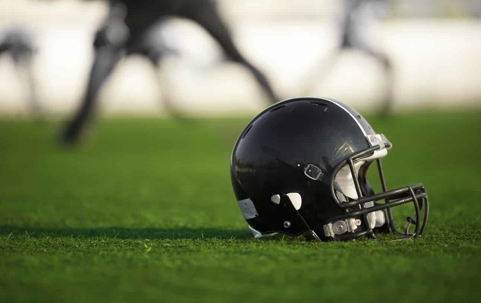The American football helmet is perhaps one of the most iconic pieces of sports equipment. Part of the standard-issue uniform for football players of all ages, many believe these helmets can protect against head and brain injuries. But how effective are they? And can they really protect against brain injuries?
Football Helmets Are Not Built to Prevent Brain Injuries
A concussion is a type of traumatic brain injury—or TBI—caused by a bump, blow, or jolt to the head or by a hit to the body that causes the head and brain to move rapidly back and forth. This sudden movement can cause the brain to bounce around or twist in the skull, creating chemical changes in the brain and sometimes stretching and damaging brain cells.
Contrary to popular belief, football helmets are not designed to completely prevent brain injuries—they are designed to reduce the likelihood of an open head injury or skull fracture. As the Centers for Disease Control and Prevention (CDC) states, “There is no ‘concussion-proof’ helmet.” This does not mean concussions are not a problem for football players; rather, it illustrates the necessity for a redesign.
Football Players Are at a High Risk for Brain Injuries
A brain injury occurs when a person’s body or part of their body is struck by an outside force, causing the brain to slam against the skull. A person who has already suffered one head injury is more likely to suffer a second one. Per the CDC, the symptoms—memory problems, headaches, brain fog, nausea or vomiting, light and sound sensitivity, etc.—are likely to last longer the second time around.
It is easy to see how a football player may sustain a brain injury, especially while tackling. Data has shown that football players are at a very high risk of suffering repeated head injuries, which may then lead to chronic traumatic encephalopathy (CTE), a debilitating, degenerative brain disorder.
Symptoms of CTE may first manifest as short-term memory loss, changes in mood, confusion/disorientation, and difficulty thinking and making decisions. As CTE progresses, its symptoms may worsen into serious memory issues, slurred speech, tremors, slow movement, and muscle stiffness, etc.
Why Wear a Helmet if It Cannot Prevent Brain Injuries?
Although football helmets have proved to be largely ineffective in preventing closed head injuries, they effectively protect against skull fractures and open head injuries. It is not recommended to forgo a helmet while playing football.
How to Prevent Head Injuries in Football
Until a more “concussion-proof” helmet comes along, football players can reduce their chances of suffering a brain injury:
● Practice safe tackling techniques: Don’t lead with your head. Instead, try leading with your shoulders.
● Strengthen neck muscles: Studies have shown that stronger neck muscles may absorb some of the force from a blow to the head or other part of the body, therefore decreasing the chances of suffering a head injury.
● If you notice symptoms, see a doctor as soon as practicable: Treating a brain injury early on can both prevent that concussion from worsening and reduce the severity of any subsequent concussions.
If you have suffered a brain injury in a sports-related accident, you may have the right to sue for compensation. At Greene Broillet & Wheeler, LLP, we understand the hardship that a head injury can bring, which is why we are committed to recovering your full and fair compensation. Let our Los Angeles attorneys advocate for you! To schedule a free consultation, call (866) 634-4525 today.

